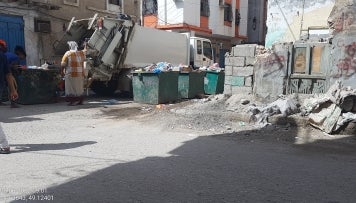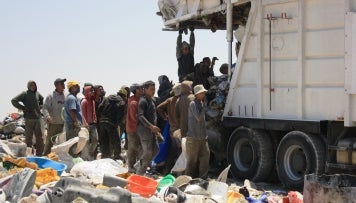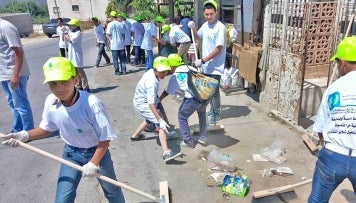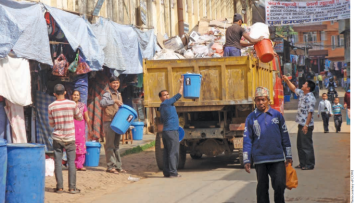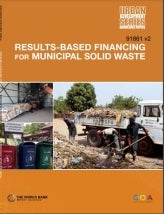
Yemen has been entrenched in a protracted conflict that has lasted for over eight years. The ongoing conflict, compounded by climate-related hazards, a cholera epidemic, and the global COVID-19 pandemic, has propelled Yemen into one of the most severe humanitarian crises in the world. In the country, nearly 22.5 million people—75% of the population—require humanitarian aid, and over 4.3 million have been displaced.
Amidst this multifaceted crisis, Yemen's solid waste management (SWM) sector has been significantly impacted. The conflict has resulted in a severe lack of resources, impeding the provision of adequate waste management services. The repercussions of unsanitary waste collection and disposal are dire, as they pose significant risks to both public health and the environment. These risks often impact the most vulnerable segments of the population hardest.
A recent study financed by the Global Partnership for Results-Based Approaches (GPRBA) revealed several barriers exacerbating an already dire situation in the SWM sector. These barriers include fiscal constraints preventing City Cleaning and Improvement Funds (CCIFs, Yemen’s public SWM service providers) from expanding service coverage and the frequency of waste collection; residents' reluctance to pay due to concerns regarding service quality; and technical and institutional capacity constraints that result in poor planning and high operation and maintenance costs.
The study emphasized the importance of strengthening the institutional capacity of CCIFs to provide SWM services effectively. CCIFs are facing challenges due to a shortage of trained staff and limited technological systems to monitor service provision at the governorate level. Notably, none of the analyzed CCIFs has a functioning Monitoring and Information System (MIS) to assess the operational status of its services at a provincial level.
In order to address the challenges and facilitate the transition of Yemen's SWM sector from emergency mode to sustainable SWM practices, GPRBA, through the Second Additional Financing to the Yemen Integrated Urban Services Emergency Project II (YIUSEP II), has allocated a grant of $6.6 million to three Yemeni cities: Sana’a, Aden, and Al Mukalla, targeting 1.9 million people. The grant has leveraged an additional $19.5 million from the International Development Association (IDA), enabling the acquisition of necessary machinery and equipment for CCIFs. The GPRBA grant, as part of the YIUSEP II Additional Financing package, has been declared effective.
The GPRBA grant aims to foster the long-term success and financial sustainability of CCIFs by offering essential technical assistance and results-based financing (RBF) mechanisms. Through this RBF mechanism, participating CCIFs will receive subsidies that bridge the financial gap between the rising operational cost of delivering services and the revenues generated. These subsidies will be gradually phased out over a two-year period, enabling the CCIFs to move closer towards financial self-sustainability. Besides enhancing the quality of SWM, the grant underscores the importance of increasing women's participation, linking disbursements to the number of women in technical CCIF roles.
